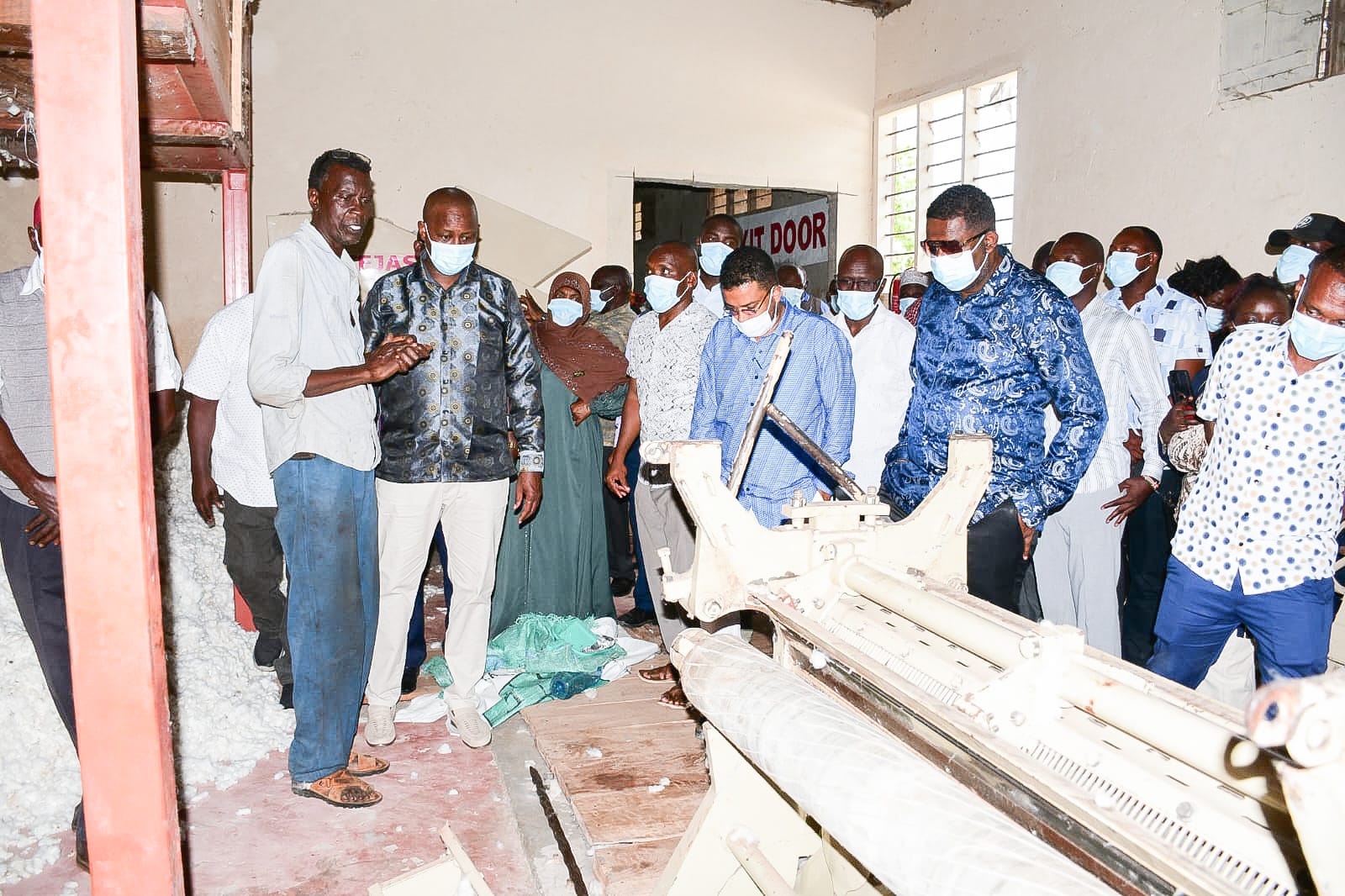Lamu Positioned as Kenya’s Cotton Powerhouse as Government Leads Sector Drive
The Principal Secretary for Investment Promotion, Abubakar Hassan Abubakar and Principal Secretary for Cooperatives, Patrick Kilemi, today concluded the second day of their official visit to Lamu, where they toured ginneries and held engagements with farmers and cooperatives. The visit sought to boost the cotton-to-clothing value chain, encourage investment and strengthen cooperatives as key drivers of economic growth in the county.
During the visit, the two officials inspected the Kenyatta Ginnery and the Mpeketoni Ginnery, which is currently under construction as the largest ginnery in Kenya, valued at Ksh 1 billion. Lamu County, which produces 63 percent of Kenya’s cotton is being positioned as a textile hub with the potential to yield up to 10,000 metric tonnes of cotton.
PS Abubakar underscored the government’s commitment to de-risking investments and supporting farmers. “We are laying the foundation for a complete cotton-to-clothing value chain – farming, ginning, spinning and garment production – with investors assured of financing through institutions such as the Kenya Development Corporation (KDC). The government is also providing subsidized seedlings, fertilizers and pesticides to overcome challenges faced by farmers,” he said.
To further support production, Thika Cloth Mills has donated 8.5 tonnes of BT cotton seed and Ksh 3 million worth of pesticides to local farmers so far, while Lamu County Government has allocated Ksh 7.5 million for seed purchases this financial year.
PS Kilemi emphasized the broader cooperative and agricultural potential in Lamu, noting that cotton by-products also contribute to food security and agribusiness. “Cotton seed is not only vital for the textile industry but also serves as livestock feed, helping farmers increase milk yields. In addition, the 25,000 acres of land under the Witu Livestock Cooperative can be harnessed for beef value chains to boost meat production and exports,” he said.
He added that government negotiations under AGOA with the United States would open greater opportunities for Kenya’s cotton exports. Kilemi also urged the revival of local Saccos, saying: “Strong cooperatives are the backbone of farmer empowerment and I encourage locals to join Saccos to access affordable credit and collective bargaining power.” He also urged farmers to embrace cooperatives, saying: “Joining cooperatives will enable farmers to access credit systems, synchronize production and maximize returns from cotton farming.”
Beyond cotton, three more industries are being developed in Lamu County including– cashew nut processing in Hindi, fish processing in Mokowe/Lapsset SEZ and coconut processing in Mkunumbi. These, the PSs said, are part of efforts to diversify the county’s economy and create sustainable livelihoods.
The visit concluded with the presentation of a certificate of registration to the National Cotton Growers Cooperative Union Ltd, signaling government support to farmer-led institutions. Both PSs reaffirmed their ministries’ commitment to working with stakeholders to unlock Lamu’s full potential as an agricultural and industrial hub.

